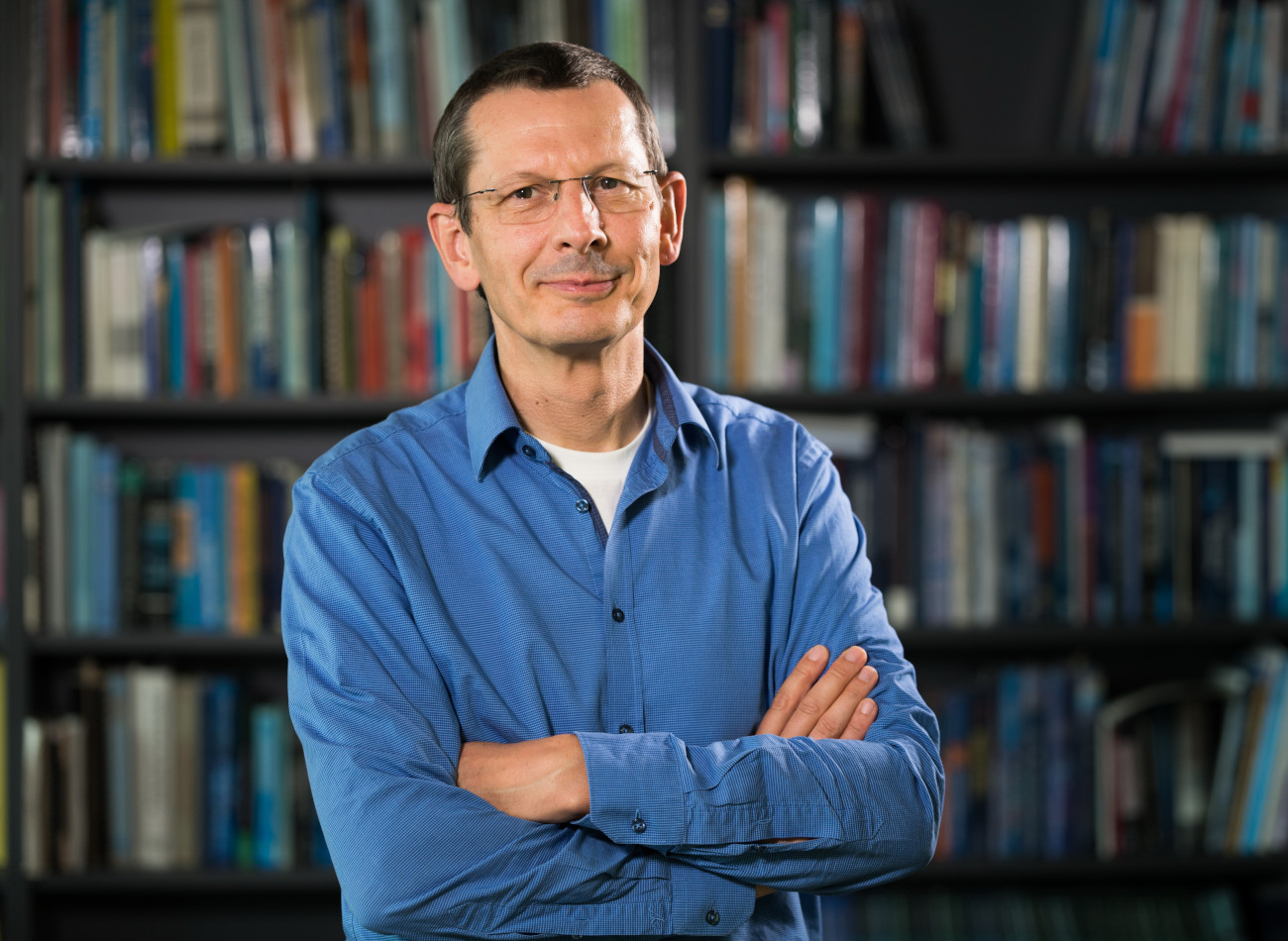
© John McConnell (flag designer), NASA (Earth photograph), SiBr4 (flag image)
Earth Day: “We Have a Global Responsibility”
Interview with climate and marine researcher Professor Michael Schulz
On April 22, more than 175 countries celebrate Earth Day, which promotes an ecological and environmentally conscious lifestyle. Climate and marine researcher Professor Michael Schulz, co-chair of the Sustainability, Climate Justice, and Climate Neutrality Commission, explains the university’s contribution in an interview with up2date.
Mr. Schulz, April 22 is International Earth Day. What is the global responsibility of the academic community to overcome global challenges to the environment and sustainability?
Earth Day is an occasion when we should be aware that we all have an ecological footprint. Our actions have consequences. The university’s mission statement explicitly recognizes that we have a global responsibility. We live in a country with above-average CO2 emissions both past and present. As an internationally-oriented university, we also have a responsibility to provide our students with knowledge for the design of more sustainable processes and structures.
What role do graduates play?
In the past, Bremen was known to train the engineers for all of Germany. Many of these well-trained engineers moved to other federal states due to attractive positions. My wish for the future is that in a few years, we will be able to claim that the transformation experts for Germany are from Bremen. We will certainly not be the only ones in this field, but I hope that this will become a trademark of Bremen.

© Margit Wild
The human-caused climate crisis is forcing our society to reorient most areas of life. To what extent can the University of Bremen support the social transformation process?
Political and social changes do not simply follow from scientific knowledge; our focus should also be on individual action and achieving a critical mass for change. Our goal at the University of Bremen should be to equip graduates not only with specialist knowledge, but also with visions for the future. They should be able to see the bigger picture and understand sustainability goals as well as acquire problem-solving and transformation skills. The central role these experts have in a successful transformation has long been underestimated. Our university forms a microcosm of society. Even if we are obviously not able to change the entire society, our research activities contribute to triggering necessary changes. However, the decisive change in mentality must take place within society itself. The transformation process is an ongoing search for solutions. The search is legitimate, of course, but as a climate scientist, I also see that time is running out. There is a dilemma here. As a social microcosm, the university offers opportunities to “try it out,” not least because diverse groups of employees work together here and many forms of mobility play a role in everyday life. As a city-state, we also have the opportunity to promote scientifically sound political action. Another advantage is that we as a university in Bremen are not alone. There are three other universities – Bremerhaven University of Applied Sciences, Hochschule Bremen - City University of Applied Sciences, and University of the Arts Bremen – which are also intensively involved in climate, sustainability, and transformation research. At the same time, these four institutions are themselves the subject of the necessary transformation processes. Within the framework of the BreGoS joint project funded by the Federal Ministry of Education and Research, the four state universities work closely together, for example in the exchange of knowledge and the development of overarching institutional approaches.
What is your assessment of our progress in reaching the climate target of 1.5 to 2 degrees? Are we off to a good start?
A few years ago, the projections still showed the worst developments. We have made progress. Although we are still far from the 2-degree target, we are no longer headed towards a catastrophic warming by 4.5 or even 6 degrees Celsius. That means a change has already taken place, and in many areas a new way of thinking is evident. However, I do not want to gloss over the situation, because there are still too many delaying factors and climate protection is not progressing fast enough. We need to act much faster. Are we on the right path? In theory, yes, but in practice, we are not where we should be in Germany. There is no lack of knowledge, but rather a lack of winning majorities. I am convinced that the majority is aware that the climate crisis is a serious problem and that we must act. However, there is a lack of effective implementation strategies and socially acceptable solutions. Federal policy gives the impression that we could continue to live as before and that a switch to renewable energies is sufficient. This is serious self-delusion. In Europe, and especially in Germany, where we are far above the average energy consumption per capita, we must disproportionately reduce our energy consumption – to about one third of today’s per capita consumption by the year 2050. This transformation will mean significant lifestyle changes. However, the “do without” debate is not very helpful; living in a resource-efficient and net-zero emission way will certainly go hand in hand with a change in our values. Universities can provide spaces for this discourse and create visions for a future that are not dystopian. The topic of sustainability also includes conveying different perspectives. This will not be easy, but ultimately the state of the earth – which we can measure and record better and better – makes it clear to us that we have to change.
Professor Michael Schulz
Professor Michael Schulz is co-chair of the AS Sustainability, Climate Justice, and Climate Neutrality Commission and the high-profile area marine, polar, and climate research. The focus of his research is on climate modeling. Schulz has also been the director of the University of Bremen’s MARUM – Center for Marine Environmental Sciences since 2012.
Sustainability: Guiding Principle at the University of Bremen
The University of Bremen has been committed to the sustainable development of our world for years. This commitment is exhibited in numerous projects for scientific research on sustainability as well as a conscientious approach to measuring the university’s actions against its ecological, social, and economic sustainability objectives. In 2023, the university decided on a new mission statement with the intent of taking current social challenges into consideration. The focus is on sustainability and the university’s associated social responsibility. The Sustainability, Climate Justice, and Climate Neutrality Commission (NKK) led essential preparatory work.